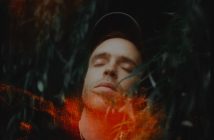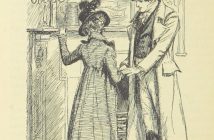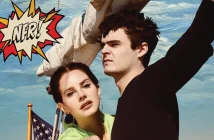Neruda is understandably a very important film for Pablo Larraín (who has previously received acclaim for directing Jackie and No) because for Pablo Neruda is an absolutely essential icon of the director’s native Chile. Neruda, a poet of immense skill and one of the more famous members of the Communist Party, is beloved or, at least, known by, all in Chile.
As such, it is rather easy for everyone to have a say or a different perspective on the Nobel Prize in Literature laureate. Larraín is content with the audience’s reaction in Chile and the idea that conceptions of Neruda have inadvertently passed over to his movie: ‘Neruda is kind of super essential to our culture and everybody would have an opinion and the reaction would be very very different. I think it’s fascinating, I think it’s fine.’ However, regardless of what Chileans think of Neruda, the movie has been universally appreciated, it being selected as Chile’s official submission for the previous Academy Awards.
Larraín, together with Golden Globe award winner Gael García Bernal (whom, in the film, takes up the protagonist mantle of fictional detective Oscar Peluchonneau), conjure the spirit of Neruda’s poetry in a film they feel more comfortable describing as a ‘false biopic’.
They do so because the movie was never intended to be historical nor is it completely based in fact. ‘I don’t think this movie is necessarily about Neruda’, Larraín says, ‘I think this movie is about what we call the Nerudian world…His cosmos, his life, his complexities.’ This movie, then, plays with the idea of Neruda. It also toys with various film genres: it is a time a noir, a cat-and-mouse game and as the locations change and as the characters change with them, Neruda also becomes a road movie. Ultimately, Larraín explains, Neruda is ‘a movie about movies: there are so many elements, so many layers.’
One such element is poetry and the extents to which the movie is suffused with it. When asked about the intricate relation between cinema and poetry and precisely how this has impacted the movie, Larraín told of how the team behind the film was ‘ transformed by his poetry’ and how ‘cinema and poetry are very connected and at the same time they’re very far’. It is clear by this that the main idea was to convey the sense, the rhythm and the power of Neruda’s poetry rather than translating it into film, rather than recreating it into film.
Gael García Bernal then went on to speak about his character, a detective whom deeply believes in Fascism, and his relationship with poetry: ‘He has a relationship that is exactly the opposite [to Neruda’s]…Fascism is most afraid of analogue thinking and free thought. Poetry is the maximum expression of the common good: that’s why poetry is so powerful’. Furthermore, Larraín and Bernal told of what makes Oscar Peluchonneau such a fascinating character: starting from his ‘super important’ moustache and concluding by telling of Neruda and Peluchonneau’s connection and how ‘they are for each other’.
The same thing can be said about Larraín and Bernal themselves: they are for each other. Asked about them collaborating on movies such as No, there was a clear sense of friendship coming from Bernal’s response: ‘He is a person I want to work all my life with. I like, also, his understanding of cinema’.
Neruda is surely a movie that understands not only cinema and poetry, but also a movie which understands Pablo Neruda. With multiple layers to it, this is a film that definitely asks for multiple viewings for there is always something that shows just how much effort and, lastly, passion the two frontmen at the heart of this movie, Pablo Larraín and Gael García Bernal, have put into it.
Neruda (2016) directed by Pablo Larraín, is distributed in the UK by Network Releasing. Certificate 15.




